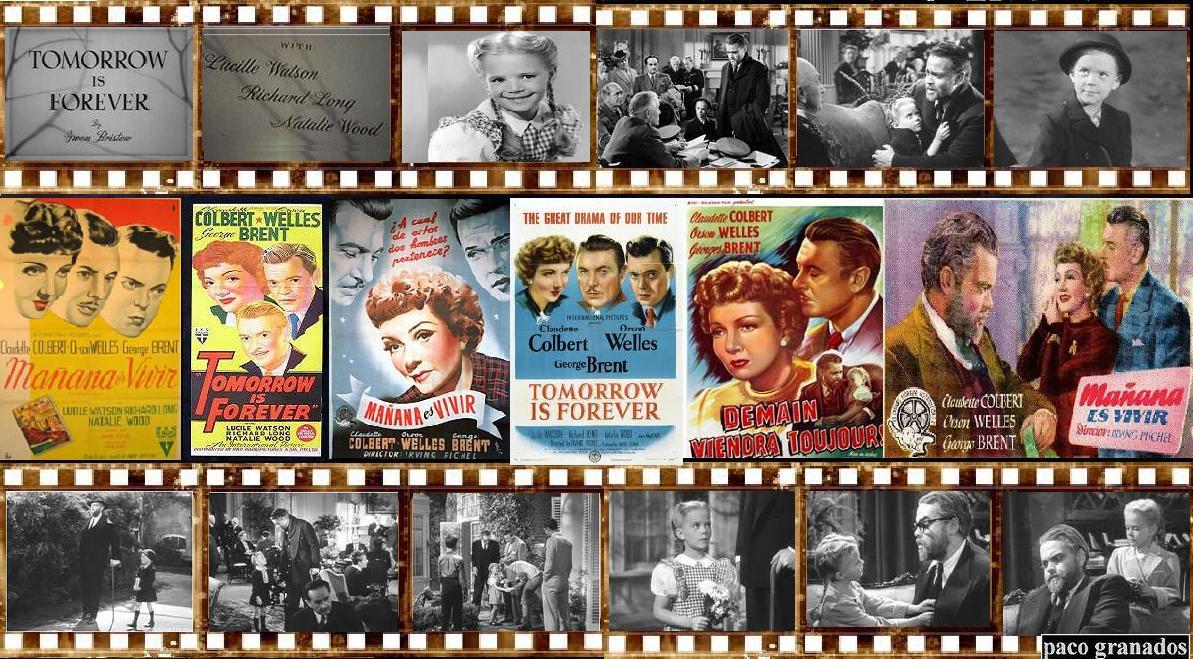CRITICA EN EL PERIODICO "LA VANGUARDIA" (26-10-1947)
No es la primera vez, y no será la última, que se aborda en una película, el asunto del hombre a quien se da por desaparecido en la guerra y retorna pasados los años. Como puede comprenderse "Mañana es Vivir" tiene sobrados alicientes de tipo argumental, para que el publico se entregue al interés del drama. Cierto que hay puntos inadmisibles y hasta demagógicos, pero es innegable que Pichel ha dirigido la película con maestria y como factor de esenciales valores la interpretación a cargo de Claudette Colbert, George Brent y Orson Welles de extraordinario mérito, sobre todo por parte de este último que realiza una labor personalísima, de calidades y denotando un completo dominio del estudio del personaje.-U. SÁENZ GUERRERO
OOOOOOOOOOOOOOOOOOOOOOOOOOOOOOOOOOOOOOOOOOOOOOOOOOO
My all-time sentimental favorite
Since the first time I saw this wonderful film on late-night TV, maybe 30 years ago, it has been my sentimental favorite. Every time I've seen it since, once a year on average, it's made me weep; not many films ever have this effect on me, even once. I simply don't understand why it isn't better known, not to mention better regarded. The touching story, fine direction, good score and superb acting add up to a great experience. For me, the performances by Claudette Colbert and Orson Welles are their most effective; hers ranks with her work in "Three Came Home" and "Since You Went Away," while his is even finer than in "The Stranger." Anyone who loves a good old-fashioned love story, sob story, multi-generational saga of the type Hollywood used to make so well should give this one a try.
OOOOOOOOOOOOOOOOOOOOOOOOOOOOOOOOOOOOOOOOOOOOOOOOOOOOO
Nicely Turned Melo
Take a journey back to the mid-40s and enjoy this weepie about lost love and balancing pleasant memories against present endowments.
Colbert's character must wrestle with what she "lost" twenty years ago and what treasures she now has. Welles' character is there to assist in her deliberations, while Brent offers a conciliatory bridge between what was and is now.
The casting couldn't be bettered: what a treat to see Colbert and Welles working together. This provided Orson with one of his most sensitive roles, and he plays it with great compassion. Colbert and Brent are both excellent, and young Natalie Wood offers a most impressive performance as a war refugee. Richard Long is likewise fine as an idealistic young man wanting to do his part to make this a better world.
Max Steiner's score is unusually rich, complete with high voices mixed with strings, and a romantic main theme highlighting the essence of this sentimental script.
Irving Pitchel's direction is on target for this emotional material. Very beautifully rendered.
Colbert's character must wrestle with what she "lost" twenty years ago and what treasures she now has. Welles' character is there to assist in her deliberations, while Brent offers a conciliatory bridge between what was and is now.
The casting couldn't be bettered: what a treat to see Colbert and Welles working together. This provided Orson with one of his most sensitive roles, and he plays it with great compassion. Colbert and Brent are both excellent, and young Natalie Wood offers a most impressive performance as a war refugee. Richard Long is likewise fine as an idealistic young man wanting to do his part to make this a better world.
Max Steiner's score is unusually rich, complete with high voices mixed with strings, and a romantic main theme highlighting the essence of this sentimental script.
Irving Pitchel's direction is on target for this emotional material. Very beautifully rendered.
OOOOOOOOOOOOOOOOOOOOOOOOOOOOOOOOOOOOOOOOOOOOOOOOOOOO
Heart-Rendering, To Say The Least
What a powerful story! So powerful to me, at least, that I have only watched it one other time and have little desire to see it again.....even though it's a fine movie. It's too frustrating a story for me, frankly. I could NOT have done what Orson Welles' character did in this film. Welles, by the way, is outstanding in here. He, Claudette Colbert, George Brent and Richard Long provide some wonderful acting.
Long, playing the elder son, presents a tremendous contrast of how a young man acted back in the 1940s compared to nowadays in terms of of respect and manners. The little girl in here is played by Natalie Wood. I wouldn't have known it was her had she not been mentioned on the back of the video box. She has blonde hair and is about five or six years old, and does an impressive job speaking German.
This is a real heart-rendering story. The only drawback is the credibility of Colbert's character, "Elizabeth Hamilton," the wife of Welles. A supposed war victim and gone for years after his marriage to her, Wells - despite now having a beard and aging a bit - would still be recognizable (at the least, audibly) to his former wife. It was asking a bit much to believe she wouldn't realize it was him, but it's still good storytelling and a film that hits you deeply. Speaking about the last point, if you liked 1942's "Random Harvest," you probably would like this, too.
OOOOOOOOOOOOOOOOOOOOOOOOOOOOOOOOOOOOOOOOOOOOOOOOOOOOOOO
The Saddest Movie I Know
OOOOOOOOOOOOOOOOOOOOOOOOOOOOOOOOOOOOOOOOOOOOOOOOOOOOOO
Watching Greatness
I tried to see this film before because I remember the very beginning, but I guess I was interrupted. This time I saw it through and realized I was watching greatness. This film has outstanding dialog and a very nuanced script. Oh if people today could only write like that....it is no wonder I watch old movies. This film is a clinic on dialog.
The acting was great across the board but the direction, story, script and casting were especially good. It was a tightly woven story and an unusual one at that.
Wells put in his best performance. Could it have been better, maybe but the way he delivered those heart rending lines...........well maybe it couldn't have been much better. His deep rich voice together with the tenderness, wisdom, and compassion. Well it doesn't get much better. People who didn't appreciate that have not actually experienced life yet. Do not miss this when it comes around again, I know I won't.
How good was it? Well this is the first time I felt compelled to comment on any films here.
The acting was great across the board but the direction, story, script and casting were especially good. It was a tightly woven story and an unusual one at that.
Wells put in his best performance. Could it have been better, maybe but the way he delivered those heart rending lines...........well maybe it couldn't have been much better. His deep rich voice together with the tenderness, wisdom, and compassion. Well it doesn't get much better. People who didn't appreciate that have not actually experienced life yet. Do not miss this when it comes around again, I know I won't.
How good was it? Well this is the first time I felt compelled to comment on any films here.
OOOOOOOOOOOOOOOOOOOOOOOOOOOOOOOOOOOOOOOOOOOOOOOOOOOOOO
'How wonderful to know that one has been loved, and to be remembered'
This powerful and heart-wrenching melodrama takes its strength from the intensity and honesty of the central performance by Claudette Colbert, who makes the whole thing believable despite various story weaknesses and implausibilities. Orson Welles and George Brent are both very effective in the other lead roles, though Brent has little do but be sympathetic and attentive (which he always did very well in films), whereas Welles has to do some serious acting. This is a story of the wreckage of private lives caused by wars. The extreme situation portrayed here may have been rare, but such things must have happened occasionally. It is incredible to think that this important film has never been released on DVD. I had to acquire it on an old VHS video. The story concerns a young husband (Welles) at the time of the First World War who 'surprises' his wife (Colbert) one day at their comfortable home in Baltimore by putting on a uniform and announcing that he is going off to War. As we all now know, this kind of behaviour was common at the time, when all the young men didn't have any idea what they were getting into and thought it would all be over by Christmas. So he went off to fight in Europe and Colbert got a telegram informing her of her husband's death. She was pregnant, and was looked after by George Brent who fell in love with her and married her. But the problem is that Welles was not dead at all, he had lost his dogtags in the trenches and ended up in a German hospital for months with terrible facial scars and severe wounds. Having been, as he imagined, permanently and severely deformed, he opted not to return home and impose such a humiliation on his wife. Instead, he decided to remain 'dead, stayed on in Austria and became a German-speaking chemist named Dr. Koestler, assuming this false identity and new life with the aid of his Austrian doctor, who employed him. But 20 years later, the Germans having taken over Austria, Welles, with a desperate limp and a beard, had to flee, after his mentor was murdered by the Nazis. He brought with him a charming little orphan girl who had seen both of her parents murdered by the Nazis also. This little girl is played by the seven year-old Natalie Wood in her first genuine acting role (she had made brief uncredited cameo appearances in two previous films, playing for instance a little girl who drops an ice cream cone, no big acting job there). It is strange to think that I am writing this in era when so few people now remember who the amazing Natalie Wood was. Her early death at 43 cut short her career. But she was one of the leading young female stars of her generation. (See for instance my review of her in THIS PROPERTY IS CONDEMNED, 1966.) Altogether, she made 66 films in her short life, and is probably best remembered for WEST SIDE STORY, 1961, GYPSY, 1962, and REBEL WITHOUT A CAUSE, 1955. Her most characteristic whimsically smiling expression, particularly around the eyes, is to be seen here when she was still a tiny child. In the part, she speaks very good German with a decent accent. (Wood was from a Russian immigrant family, and her parents barely spoke English.) There will never be another Natalie Wood. Well, Welles and Wood (he pretends she is his daughter to get her through customs) make their way to America where Welles has secured a post as a chemist in his old home town of Baltimore, to see how the land lies there, as he no longer has his life in Austria. He goes back to the old house and sees that it is empty. But before long he comes face to face with Colbert, who does not recognise him, as well as his 20 year-old son by her, who does not even know that Brent is not his father. In fact, ironically it is Brent who is now Welles's employer because he owns the chemical company. Welles continues to pretend to be Koestler, but it is difficult for him. He becomes increasingly involved in the family affairs of his former wife and his son and slowly she begins to suspect that he may really be her ex-husband. Colbert convincingly portrays the profound emotional agony of this impossible situation, and Welles heroically continues to insist he is someone else, while Colbert's belief that he is her original husband becomes stronger and stronger. Meanwhile Welles is forced to intervene in a tense emotional situation regarding his son, who of course doesn't realize that he is his son. This all becomes increasingly fraught and we don't know what is going to happen, and I'm not going to tell.
OOOOOOOOOOOOOOOOOOOOOOOOOOOOOOOOOOOOOOOOOOOOOOOOOOOO



.png)



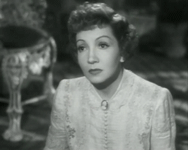
























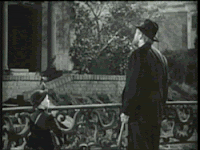








































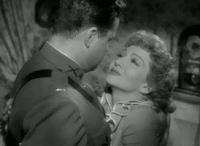



































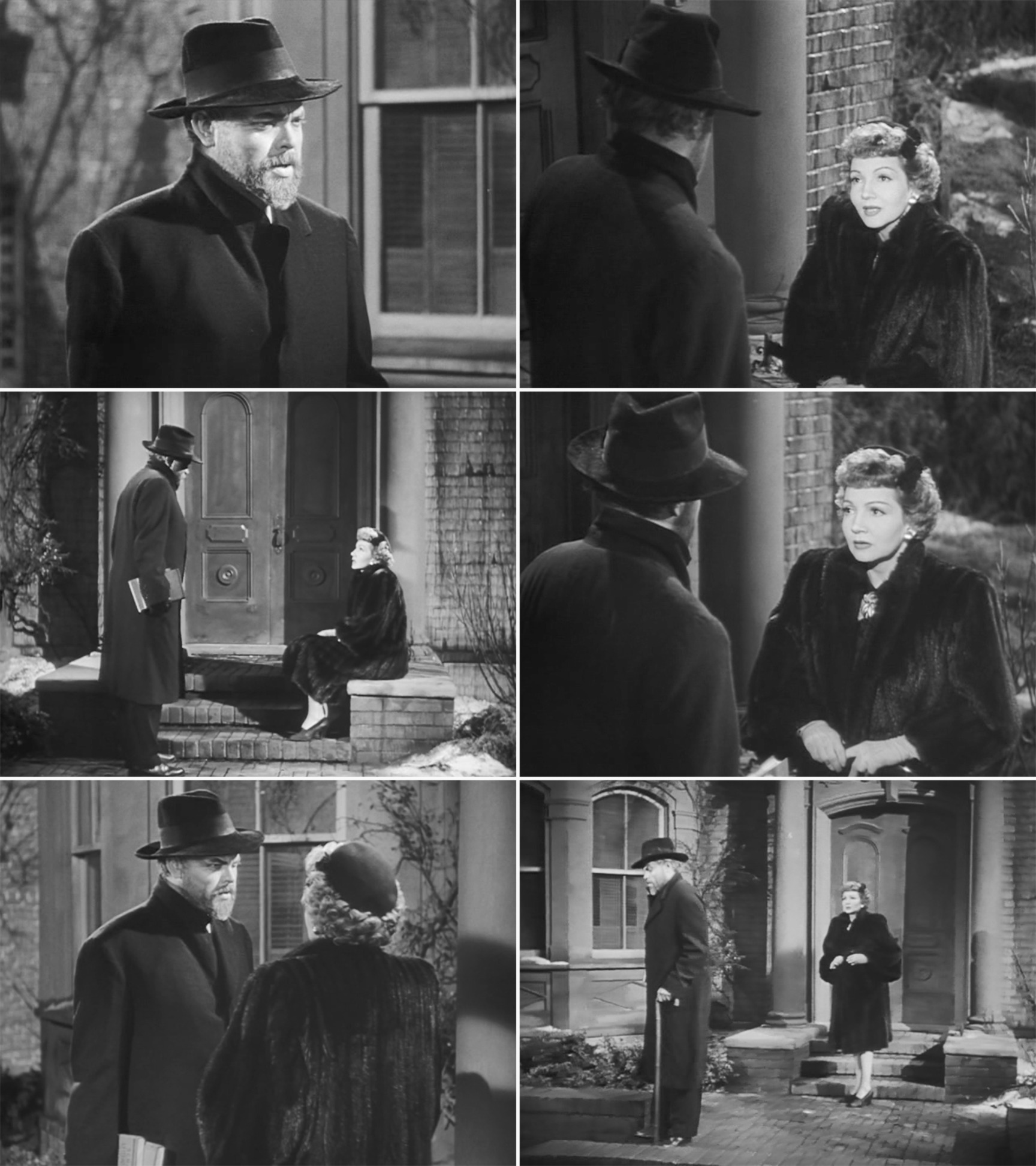








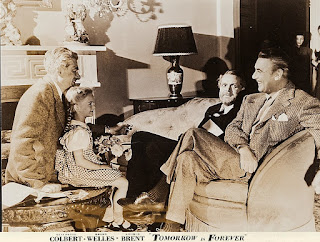











.jpg)
.JPG)



























